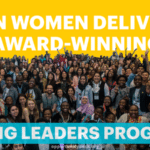The start of college is a huge deal. You’re going to meet new people, see new places, and learn new things. You’re young, so you’ve got a lot to know these next four years, so why don’t you make a jump? Books are among the best instructors in life.
They can influence the way you see yourself and the world around you. With each and every book you read, you are introduced to different insights and ideas that will help you to understand others and open up to all the possible options that lie ahead.
10 books to Read Before Going to College
- To Kill a Mockingbird by Harper Lee
To Kill a Mockingbird, a novel was written by Harper Lee, released in 1960. Widely successful, it has been translated into some 40 languages and sold more than 30 million copies worldwide. He won the Pulitzer Prize in 1961.
The novel was lauded for its insightful portrayal of the child’s exposure to racism and discrimination in the South of America To Kill a Mockingbird is also a young girl’s coming-of-age tale and a darker drama about the origins and effects of racism and bigotry, questioning whether good and evil can coexist within a single group or person.
She has a lot of lessons to pick from life issues, as well as life’s injustice to kids, weak people, or people who have a different skin colour As a result, we can also agree that generosity, affection and mutual support do not rely on your skin colour, social status or public opinion. It all depends on the soul of an individual.
- Crime and Punishment by Fyodor Dostoyevsky
Crime and Punishment are based on the mental agony and ethical dilemmas of Rodion Raskolnikov, a poor ex-student in Saint Petersburg. Who was on a quest to determine his place in this life and to fully comprehend who he really is?
He formulated a plot to kill a dishonest pawnbroker for her money. After murdering an old pawnbroker, this young man is attempting to defend his actions. Before he was killed, Raskolnikov claimed that with the money he could free himself from poverty and then go on doing good works.
- A Brave New World by Aldus Huxley
A novel termed “negative utopia” by its own author. The novel explores a dystopian society called the World State, which centres on science and performance. In this system, emotions and personality are shaped by young students, and there are no enduring relationships, since “everyone belongs to everyone else” (a general world State dictum).
Through making its people so comfortable and shallow they are not concerned about their personal rights, the Government of Brave New World maintains power. In the Brave New World, the effects of state power are the loss of honesty, morals, beliefs, and emotion – in short, the loss of humanity. This is a tale regarding our future world, in which happiness plays an important role, but individuality is not valued.
- One Hundred Years of Solitude by Gabriel Garcia Marquez
One Hundred Years of Solitude is the groundbreaking novel by Colombian author Gabriel Garcia Márquez of 1967 that narrates the past of a family of Buendía who has created the fictional town of Macondo, the patriarch of which, Jose Arcadio Buendía, is Colombia’s most popular region.
The main themes in this novel are like a waterfall in the Hundred Years of Solitude, coming back to the Buendía, and the human condition over and over again. It’s time, destiny, fun, and magic. The great fun and strength of the novel reside in these definitions.
It is indeed a myth-novel, an epic book, a novel – a parody of the evolution of mankind, where every one of us is doomed to loneliness, and also where loneliness seems to be the only thing which really dominates the world, in which everything is entangled with the ties of fatal love.
Perfect reading for college educators to comprehend and appreciate the importance of friends and relatives people who support them.
- A Farewell to Arms by Ernest Hemingway
History of context and writing. The novel was focused on Hemingway’s own experiences in Italy’s wartime campaigns. A Farewell to Arms is based on a variety of themes that differ: war and love, male and female, fear and bravery.
While war is the setting for the novel, the protagonists can resolve their fears, redefine gender roles, and find love. The very first, as well as the best! – The book of the English literature “Lost Generation” concerning World War I.
This is regarding the current war where young and innocent boys had become Poor Bloody Infantry, and either died or became angry to the maximum; concerning war where love is only a fleeting moment of rest, without any history and no future; about the war, you want to remember, yet you can’t forget.
- Uncle Tom’s Cabin by Harriet Beecher Stowe
Uncle Tom’s Cabin was a novel against slavery by the American author Harriet Beecher Stowe. The books are anti-slavery. The book was written in 1852 and had a significant influence on American attitudes and slavery in the United States and is said to “assist in setting the foundation for the civil war.
“This book is part of the past of several colleges, as it was both lauded and criticized. A challenging and divisive time in American history, defined by many prominent authors and essayists, is reflected here, and it allows young people to consider the ideals and values in their nation and see how they have evolved since then.
- Lord of the Flies by William Golding
The tales of a team of young boys who live on a deserted island alone are told in William Golding’s novel Lord of the Flies in 1954. The child developed laws and discipline, but the children gradually became aggressive and abusive without any adults acting as a ‘civilizing’ instinct.
Bloodshed, man and Death. It shows us how vital (and necessary) it is to be a great leader, to have a clear conscience, to be a critical thinker, to be able to easily find a compromise and to remain human in the first place.
- The Running Man by Stephen King
Running Man is a thriller of science fiction by the American writer Stephen King which was first released as an original in 1982 under the name Richard Bachman. In 1985 the books of the omnibus The Bachman were collected.
The novel was released in 2015 in the dystopian United States, where the economy is in decline and global violence is rising. A common man resides in a typical tiny town. Slowly, but certainly, he sinks into the abyss of black hatred of himself and all those around him.
And it’s difficult to stop him when an incident occurs. America is becoming a hell; people are dying of starvation, yet the only way to get some money is to fully participate in perhaps the most monstrous game of a sadist’s warped mind. What are the people willing to do, and just how far are they prepared to go to acquire what they desire?
- A Clockwork Orange by Anthony Burgess
A Clockwork Orange’s main message tends to be that mankind has a basic right (either good or evil) to choose. Evidently, this moral dimension differentiates humans from robots and machines.
A sly, ruthless, charismatic adversary, Alex, the leader of a street gang that finds crime to be a high art of life, joins the iron jaws of a modern state system for the rehabilitation of offenders. He then becomes the victim of violent crime.
- The Divine Comedy by Dante
The Divine Comedy is an epic poem that portrays the realms of post-life, a popular medieval Italian. Who hasn’t heard of Dante and his nine Inferno circles? The Divine Comedy consists of three separate sections, each of which comprises 33 chapters.
This is our opportunity to learn from all of them and to consider the perspective of the afterlife Christians had in the middle Ages. We’re all going to end up paying for our sins, and this book encourages us not to neglect it.
Every Student Should Read At least 3 of These 10 Books
The Positive Impact of Books
- Reading Enables Us to Witness More Sensations
Reading enhances the central sulcus function of the brain that regulates our motor capacity. When we read a paragraph where a character walks along a path, we may feel like we are experiencing our walk from the neurons in this field. Then there is a grounded knowledge; a principle which shows that reading actually puts you via the biology of the brain in someone else’s shoes.
- It Makes Us More Emotionally Sensitive
Literary fiction readers have a greater potential than those who read more nonfiction to understand other feelings and thoughts. In other words, fiction writers could be more empathetic by thinking about their favourite characters and seeing a situation better from different perspectives.
- Books Offer Plenty Of Mental Stimulation
A daily mental stimulation of the brain will help to slow Alzheimer’s and Dementia down. The higher you step, the better condition you are in. It is a physical exercise. It needs exercise to keep your brain and alert. Reading (along with puzzles and games) retains high activity rates and powerful and enjoyable brain capacity.
- We Become Stress-free when we Read constantly
It is easier for your mind to relax and briefly transfer yourself to another planet when you develop the habit of reading. A good book will evaporate stressors every day, place you in the shoes of your character, and focus on what you think. Seek to make yourself more used to reading when you are looking for a simple way to relax and unwind.
- Books Enhance Your Memory
Every time you read, you engage several brain functions, such as phonemic comprehension, visual and additive processes, understanding, fluidity, and more. Reading reaches your brain, keeps your mind concentrated, and helps you to manage things that take place before you. The more you devote yourself to reading and broaden your mind, the more easily your memory can be held solid.
In conclusion, Literature offers so much more than the narratives at face value. They are filled with symbols and lessons that end up taking readers out of their very own minds and then into those of others with different points of view on common ideas.
So although we motivate you to read whatever that will inspire you, however, believe that these books focus on providing especially significant lessons for future college students that are about to move into the broad adult world.






